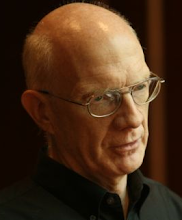 example, take my reaction to the Oregon Manifest. Here is an event that, on the face of it, people like me should be wholeheartedly in support of. (I know, don't end your sentences with prepositions.) But still, I find it troubling. Bear with me as I explore the reasons why:
example, take my reaction to the Oregon Manifest. Here is an event that, on the face of it, people like me should be wholeheartedly in support of. (I know, don't end your sentences with prepositions.) But still, I find it troubling. Bear with me as I explore the reasons why:First, what is the Oregon Manifest? It's a three-weekend series of bike related events in October and November. There appear to be two main events: The Oregon Manifest Constructor's Design Challenge is a framebuilders' competition aimed at [inspiring] "frame builders and designers to develop considered, integrated, and spectacular solutions for the everyday rider". Complementary to this is the second major event, the Constructor's Race, wherein "Design Challenge builders (or their designated proxies) will put their entries to the test braving dirt, gravel, elevation climbs, and urban technical trials on the route to Bike Victory."
The judging criteria for the Design Challenge is truly broad and deep. From the entry form, it reads like this:
- Truly sensational solution: A genuinely unique and innovative solution for transportation use. Amaze us.
- Handling: The bike must handle equally well with and without load. Both options will be tested against turning and straight pedaling.
- Integration: Design solutions should be integrated into a complete and harmonious whole, rather than a checklist of details.
- Presentation and Execution: Fabrication refinement and final presentation are important indicators of skill and thoughtfulness. Extraordinary craftsmanship can be displayed equally well in the simplest brazing or the fanciest lug. Individual design solutions should build to a single visual and functional whole.
- Overall response to the course and challenges: Entry bikes must take into consider all elements of the race course, the 10 design considerations and the overall challenges they present.
- Load carrying: Bikes must accomodate and securely carry the rider’s award ceremony party attire, a provided 6-pack of beverage (in glass bottles), and a provided small container of party snacks.
- Security: Bikes must be protected from theft while unattended. A smart, easy solution for securing the bike under different conditions is expected.
- Portage: Bikes must accommodate being carried by its rider over a section of the course.
- Utility: Bikes should accomodate the expected need for changing weather, lighting conditions, and visibility. We know that you know what this means.
- Quality and Rattles: If elements are loose, rattling, or otherwise inoperable at the race finish, points will be deducted for each failure.
Assumption 1: The reason people don't use bikes for transportation is that the bikes themselves aren't good enough, nicely-enough designed, practical enough, or (especially) convenient enough. This is a seductive assumption: "Hey, if we could just make bikes convenient, like cars, people would use them!" Well, I hate to be the one to break this news, but it's just not going to happen -- bikes will never be as convenient as cars, and we'll just have to live with that. The truth is, the not-so-little problems with bike "convenience", to wit,
- safety in traffic
- weather
- security
- comfort
- physical stamina
- efficient power utilization
- perspiration
Assumption 2: A 77-mile cyclocross race is a predictor of a successful transportation system. Look, practical transportation needs are in the range of 20 to 30 miles a day, maximum. And they don't involve portage or dirt trails. (They do involve carrying lunch and a change of clothes, however, which is admittedly also part of the challenge.) Cyclocross races, especially ones with extra "degrees of difficulty", are fun, for sure, but suggesting that an event like this has anything to do with the "everyday rider" is muddying the waters.
Assumption 3: The engineering and fabrication required to solve the problems stated in the design brief can be done in 2 months. I've built frames before; 30 years ago in Houston, I had the great privilege to be an apprentice to the late, great Roman "Ray" Gasiorowski, maker of Romic bikes. From my personal experience, to even begin to solve these problems, you're talking about a month of pencil-and-paper work. Then fabrication of special components, then assembly and testing. The timing is such that what you're going to get is a bunch of beautiful, well-engineered, fast cargo bikes. This is not a bad thing, mind you, but not "velorutionary". (Here's a prediction: several of the entrants, and probably the winner, will use a Rohloff Speedhub, because of its superior transmission capabilities.)
Conceptual problems aside, though, I do see one other problem, or should I say potential conflict, and that is this: The listed Director of Oregon Manifest is someone named Jocelyn Sycip, and one of the listed entrants in the design competition is Sycip Design of Santa Rosa, California. Is this a conflict of interest, or am I to believe that the Sycips of Oregon and California are unrelated?
Yep, all these years and miles of bicycle commuting are turning me into a curmudgeon. No doubt about it.









